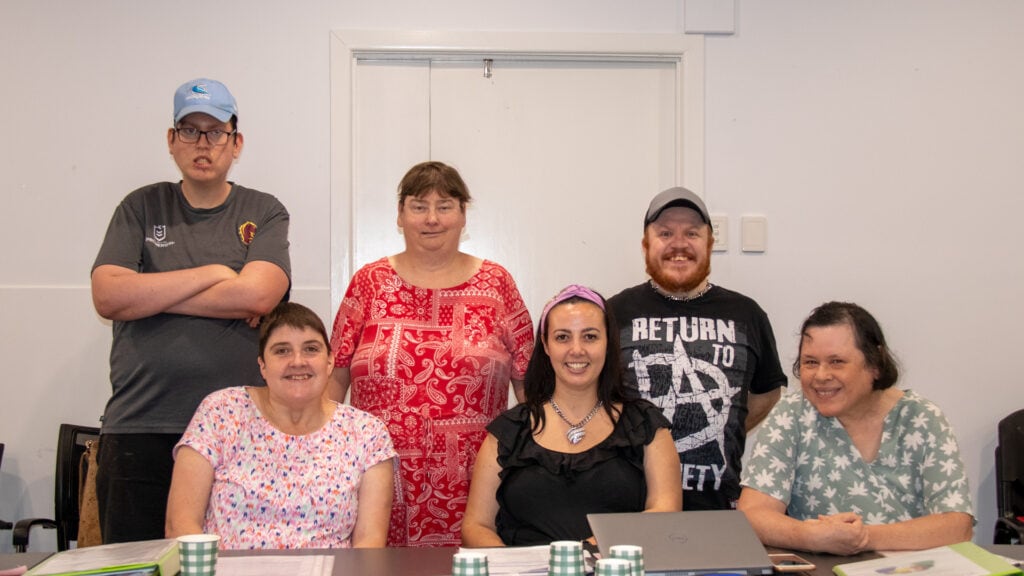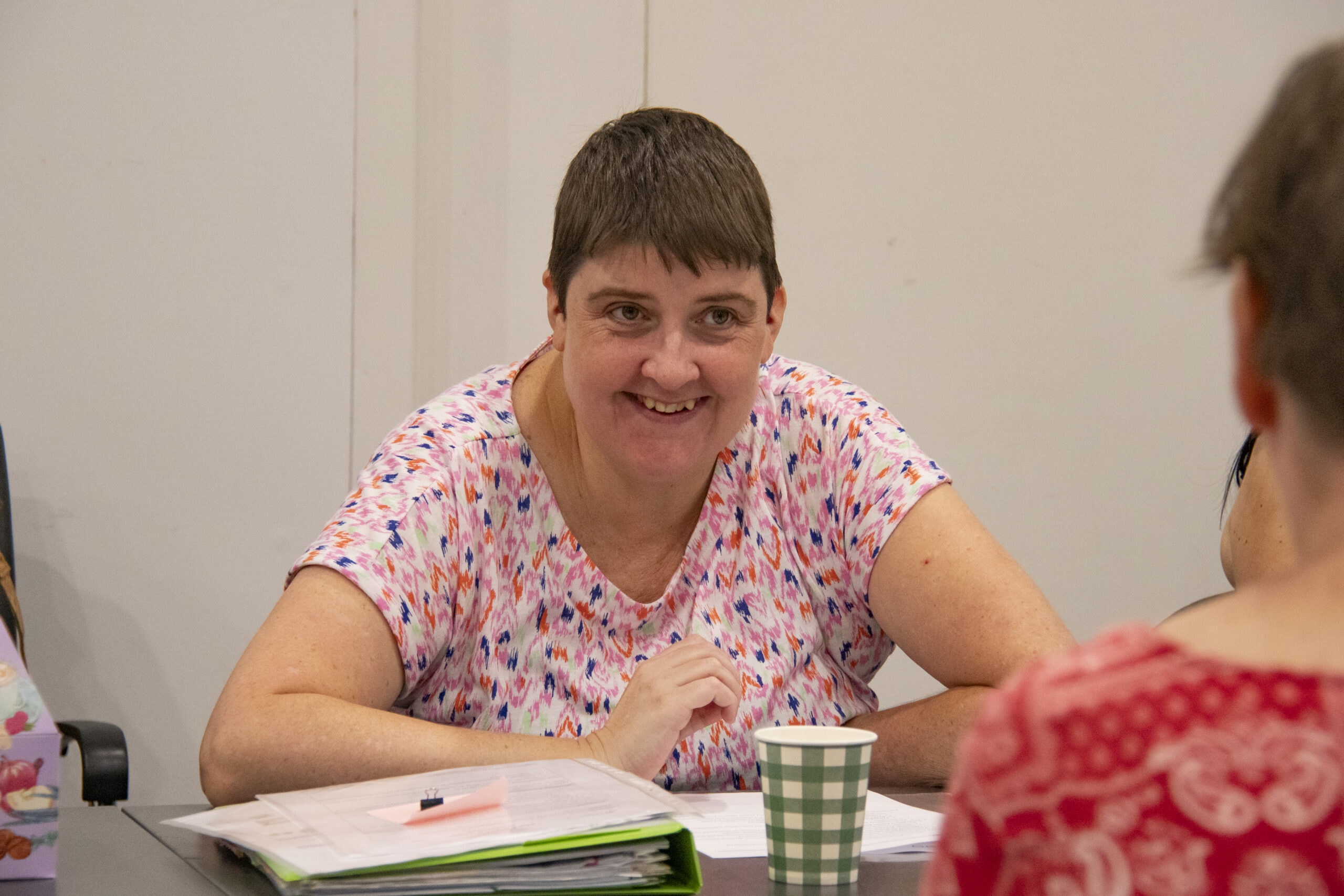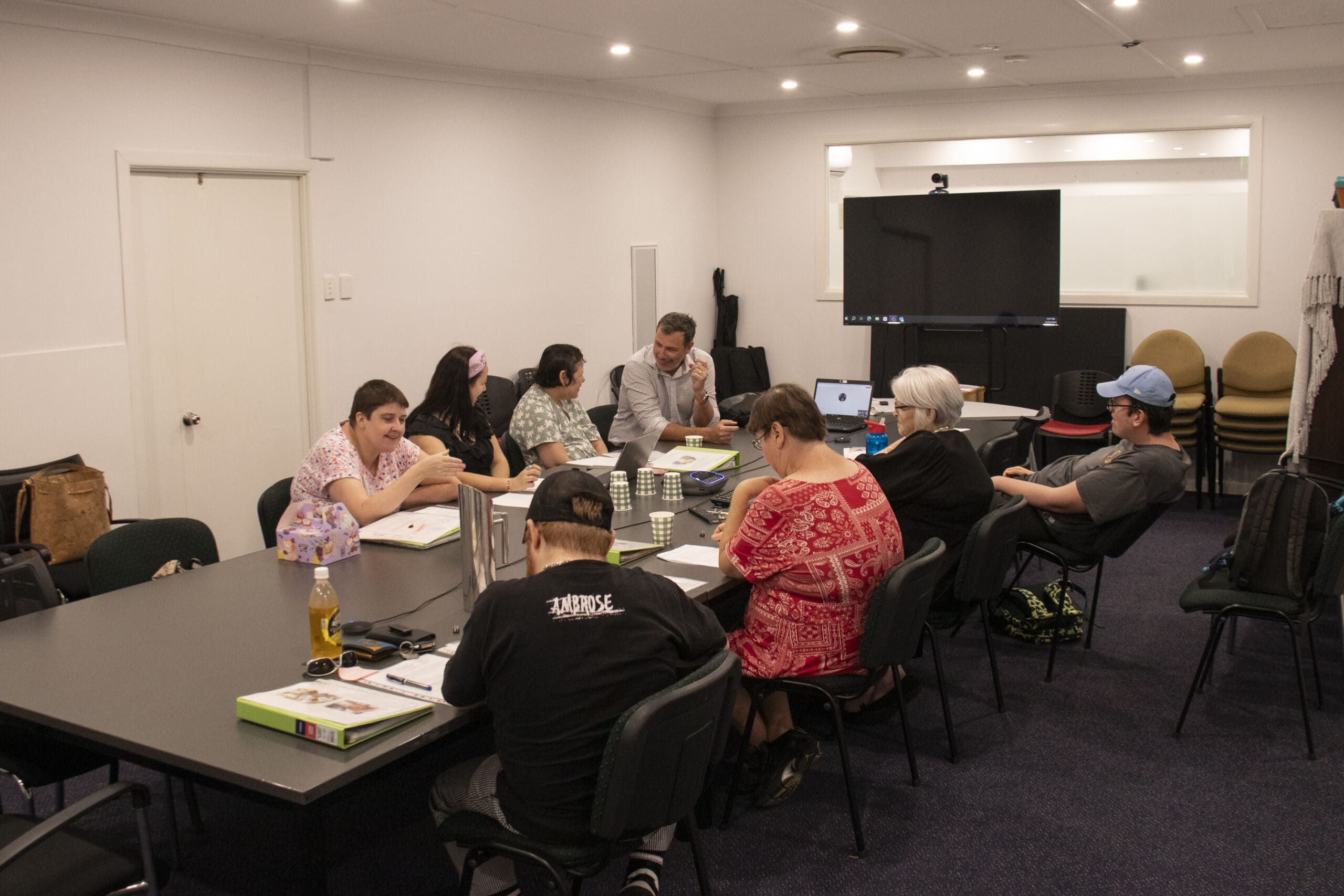
Not many 43-year-olds would describe themselves as “vibrant and energetic”.
But Clare Smith’s zest for life is one of her best qualities.
And when it came to getting involved in Mercy Community’s People’s Voice Committee, Clare was first in line.
Launched three years ago to help identify improvements in our disability services, the initiative is a testament to our dedication to inclusivity and ensuring that the voices of those we serve play a central role.
Clare, who lives with three other women in one of our supported independent living homes in Brisbane, said being able to have a say was incredibly important.
“The committee gets me out of the house which is good for me and makes me feel safe,” she said.
“We take strawberries, grapes, mangoes, other fruits to share. I like cooking cakes to take too.
“I have a big folder with a lot of information on the calendar, dates, my presentations, and all that stuff.
“It’s important to tell my friends what’s going on.”
In line with the Government’s National Disability Insurance Services review to put people with disability back at the centre of discussion, the People’s Voice Committee has been instrumental in helping us design services, policies, and practices to support a wide range of people.


Mercy Community’s General Manager of Disability Support, David Jukes, said the monthly meetings provided a valuable opportunity to reaffirm Mercy Community’s dedication to continuous improvement, transparency, and client-centred practices.
“Empowering the voices of individuals with disabilities is not just a commitment to inclusion; it is a recognition of their expertise in navigating the challenges they face daily,” he said.
“By actively involving them in shaping our services, policies, and practices, we not only prioritise their unique needs but also foster a community where their insights drive meaningful and lasting change.
“Together, we are building a more inclusive, compassionate, and responsive future that truly reflects the diverse experiences and capabilities of all individuals.
“Who better to help create change than the people who use the services we provide?”
Clare, who has lived with intellectual disabilities since she was born, has been supported by Mercy Community for the past seven years.
The assisted living home enables her to retain her independence with access to the community, while also receiving support with emotional regulation and companionship from housemates.
Mercy Community Senior Support Worker, Renae Niha, said the People’s Voice Committee was keeping Clare busy.
“Clare is an ethusiastic member of the committee,” she said.
“She always voices her opinion, and we love that she feels comfortable and confident in herself and empowered to say when she’s not happy.
“She’s a very independent person and enjoys playing an active role in helping to shape disability services and improve outcomes.
“It’s nice to know that she is being listened to and that the things she puts forward contribute to a positive change for people living with disabilities.”
Everyone has the right to be included
Giving people living with disabilities a voice is essential for promoting inclusivity, equality, and fostering a more compassionate society where everyone’s contributions are recognised and valued.
Benefits include:
Empowerment: Providing a voice to disabled individuals empowers them to express their thoughts, opinions, and needs, contributing to their sense of self-worth and independence.
Inclusion and diversity: It promotes a more inclusive and diverse society by ensuring that the perspectives and experience of people living with disabilities are acknowledged and valued.
Social integration: Having a voice enables disabled individuals to participate more actively in social, educational, and workplace environments, which facilitates their integration into community life.
Advocacy and awareness: When people with disabilities are given a platform to express themselves, it raises awareness about their unique challenges and needs, leading to greater understanding, empathy, and support from the wider community.
Policy and legislative impact: Voices of disabled individuals contribute to the development of more effective policies and legislation that address their specific needs, which can lead to improvements in accessibility, healthcare, education, and employment opportunities.
Breaking stereotypes: By giving disabled individuals a voice, society can challenge and break down stereotypes and misconceptions about disability.
Mental health: Having a voice can positively impact the mental health of disabled individuals by reducing feelings of isolation and fostering a sense of belonging. It can also contribute to increased self-esteem and confidence.
Cultural enrichment: The inclusion of diverse voices, including those of disabled individuals, enriches the cultural landscape and promotes a more tolerant and accepting society.




